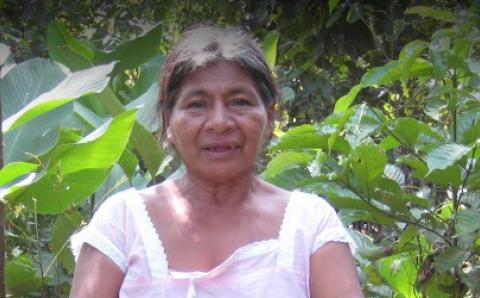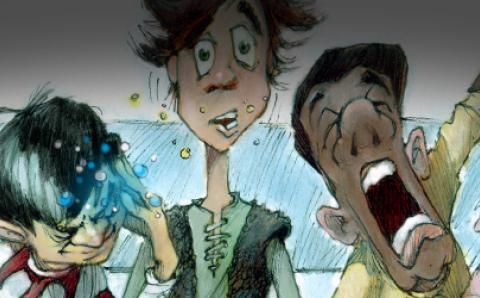George Zimmerman’s acquittal in the death of Trayvon Martin prompted two very different responses in my Facebook feed. Some felt that we should respect the fact that the justice system had run its course; we should not second-guess a jury who had seen and heard all the facts and made a good-faith effort to weigh the evidence and make a decision. Others felt that this was an extreme and racially motivated injustice. The second group included several mothers of young African-American boys, mothers who fear for their sons’ future.
This sort of divide can be found whenever there is a racially charged tragedy. I do not pretend to understand what it is like to be a young black male living on the edge of poverty. To learn more, this weekend I embarked on a virtual walk in those shoes by watching two films: Fruitvale Station (Weinstein) and The Central Park Five (PBS).
Fruitvale Station is the first full-length film, now widely released in theaters, from director Ryan Coogler. In the first hours of 2009, 22-year-old Oscar Grant was shot in the back by a police officer while being held face-down on the floor of the Fruitvale station on the Bay Area Rapid Transit system as he returned from downtown San Francisco New Year’s Eve celebrations. In an interview, Coogler says that after the shooting, Grant was portrayed as either a saint or a thug. In his movie, Coogler attempts to paint a portrait of Oscar Grant as a human being: a real person with gifts and flaws, a family he loved, and, until that night, a future he hoped to make better than his past.
Coogler succeeds, for the most part. Fruitvale Station offers viewers a glimpse into the life of a young man who has served time in prison, who loves his mother, who struggles with a quick temper, who has sold drugs, and who is still learning what it means to be a good father. Grant wanted to make changes in his life; his tragic death took that possibility away. While this was a mostly balanced portrayal, some of the fictionalized moments seem to tip the scales toward the saintly. Coogler is from the same East Bay area that Grant came from, and he is able to tease out the details of daily life. Michael B. Jordan gives a fantastic performance as Grant, drawing viewers in and showing them a complex human being. There’s no escaping the fact that, whoever Grant was at 22, he never got the chance to find out who he could have become.
This theme continued into my next cinematic foray, The Central Park Five, a documentary from directors Ken Burns, Sarah Burns, and David McMahon now available on disc. In April 1989, a female jogger was brutally raped and left for dead in Central Park in New York. The documentary examines the complete breakdown of the system in the wake of the rape. Many youths were in the park that night, some committing crimes of their own. But five boys emerged as suspects in the rape. These five, ranging in ages from 14 to 16, had never been in trouble before and did not even all know each other. Under intense pressure from police, they gave contradictory confessions to crimes they had not committed. Afterward the boys were demonized by the press and by city leaders. They were wrongly convicted and sentenced to prison; each lost at least seven years of their lives to incarceration.
Poor police work was exacerbated by a climate of fear in a crime-ridden city. Crack had come to New York, and when it did, people were afraid. According to historian Craig Steven Wilder, “It would have been irrational not to be afraid. But the people who suffered most with the rise of criminality, gang wars, drug wars, were actually the people we blamed. Most of the homicides were young, poor, working class, black and brown kids. And the dominant social message was no one cared if you lived or died.”
Now grown men, the five recount their experiences of utter confusion and fear as they slowly realized what they were being accused of and where the accusations would lead them. Sixteen-year-old Korey Wise was tried as an adult and sentenced to Rikers Island, an adult correctional facility nothing in his young life had prepared him for. This documentary is heartbreaking. Life as they knew it was over for these young men, and it was hard to come back from that, even after they had been cleared of all wrongdoing.
My pastor recently pointed out that when part of the body of Christ grieves, we all grieve. Part of the body of Christ is grieving right now. One step toward being able to come alongside fellow Christians who are feeling pain over the Trayvon Martin case is to seek more understanding of that pain.
Neither of these movies is suitable for children—both include profanity and violence—but each could be a powerful experience for a thoughtful adult viewer, and either one would lend itself to discussion. Fruitvale Station is a fictionalized “day in the life” film, a way to enter into a modern cultural experience that you may or may not otherwise understand. The Central Park Five, a factual and first-person treatment of a specific event, shows how being a minority male at the wrong place and time can lead to the end of life as you know it.
About the Author
Kristy Quist is Tuned In editor for The Banner and a member of Neland Ave. CRC in Grand Rapids, Mich.









